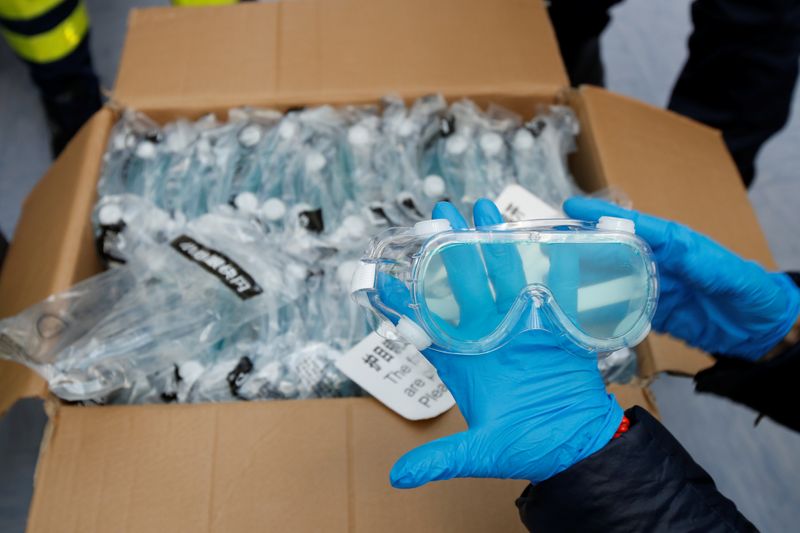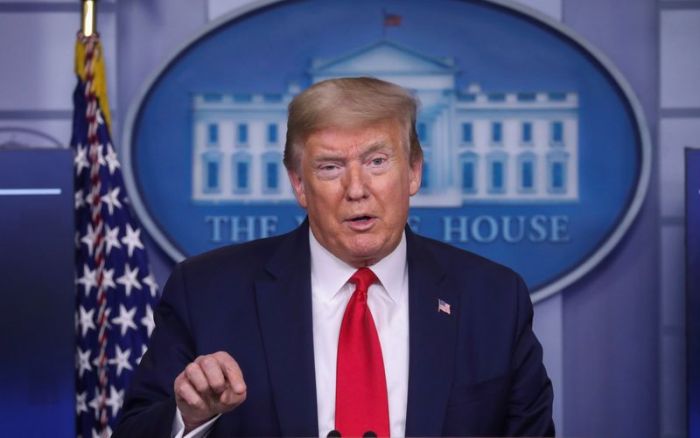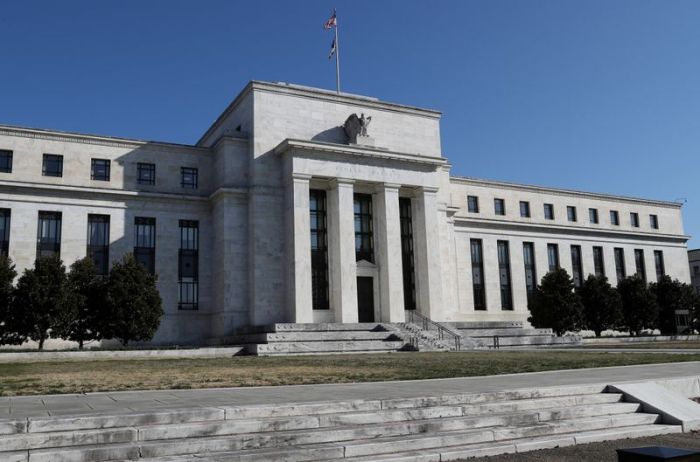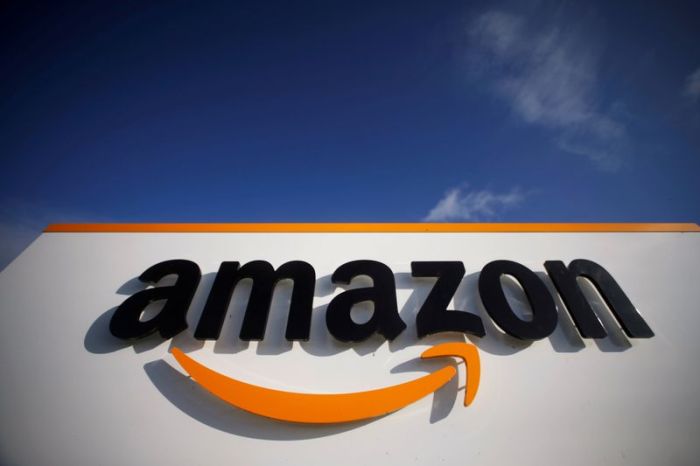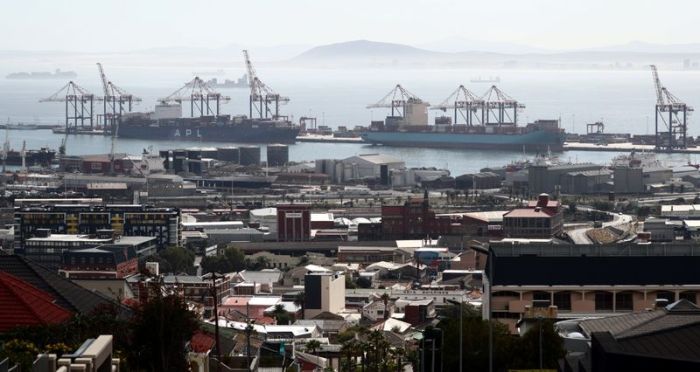WASHINGTON (Reuters) – The United States has asked China to revise new export quality control rules for protective equipment needed in the coronavirus outbreak so they are not an obstacle to timely supplies, a spokesman for the U.S. State Department said.
China tightened restrictions on exports of masks and other personal protective equipment (PPE) a week ago, calling for shipments to be subjected to a mandatory customs inspection.
The move followed highly publicized complaints from some governments and hospitals that they received PPE from China that they considered faulty.
“We appreciate the efforts to ensure quality control. But we do not want this to serve as an obstacle for the timely export of important supplies,” a State Department spokesman said late on Thursday.
“The U.S. Government has raised these concerns with (China). We have requested that China revise its new requirements to allow the expeditious export of vital PPE to the United States,” he said.
The United States is heavily reliant on medical supplies produced in China, a major strategic and trade rival, something that has been highlighted in the pandemic, in which the United States has been the worst-hit country.
On Friday, Republican Senator Kelly Loeffler accused China of holding up shipments of test kits.
“Testing is core to opening our country back up. … I’m concerned that China’s holding up test kits,” she told Fox News.
“They’re playing games with trade policy to prevent us, the United States, from getting the testing that we need.”
Separately, Democratic Senators Tom Carper and Bob Menendez and Republicans Tim Scott and Thom Tillis wrote to China’s ambassador to the United States, Cui Tiankai, expressing concern about the impact of the new rules.
“We respectfully ask that the Chinese government work with the U.S. State Department and other U.S. agencies to quickly develop a more targeted approach to its new export requirements that does not needlessly prevent quality medical products from quickly reaching the United States,” they wrote, according to a text made available to Reuters by Carper’s office.
The Chinese embassy in Washington said countries worldwide were “hunting for medical supplies, causing a big challenge for China in quality control and regulation of export.” It said to streamline procedures, a “green channel” had been set up for Chinese manufacturers to register their supplies.
It issued a factsheet saying China had exported more than 74 million N95 masks and more than 1.4 billion surgical and other types of masks to the United States between March 1 and April 15, along with other medical supplies. It said China had also donated more than 5 million masks and 500,000 test kits to the United States.
The embassy referred to a April 15 Associated Press report quoting the U.S. ambassador to China, Terry Branstad, as saying he did not believe Beijing was deliberately blocking exports of medical supplies.
On Thursday, the Wall Street Journal cited U.S. businesses and diplomatic memos as saying that China’s export restrictions had left U.S.-bound face masks, test kits and other medical equipment stranded.
It cited suppliers and brokers as saying that large quantities were sitting in warehouses across China unable to receive necessary clearances.
On Wednesday, U.S. Secretary of State Mike Pompeo spoke with China’s top diplomat Yang Jiechi and stressed the “high importance” Washington attached to China’s facilitation of medical supply exports to meet critical U.S. demand.
The U.S.-China Business Council lobby group said this week Beijing had moved to address the issue. The council’s president, Craig Allen, told reporters on Thursday: “The Chinese government is making allowances and working with our companies to ensure that they’re able to ship out.”
(Reporting by David Brunnstrom; editing by Grant McCool, Alistair Bell, Jonathan Oatis and Cynthia Osterman)

